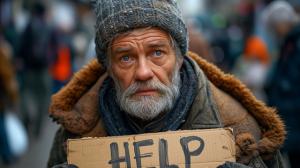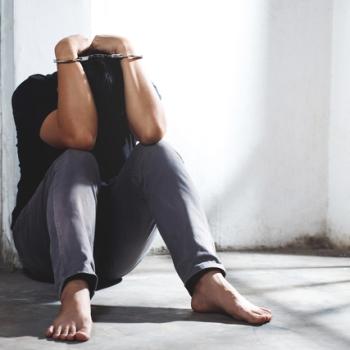
In July, Pres. Trump signed an executive order that included a civil commitment policy. This policy forcibly institutionalizes the homeless afflicted with severe mental illness, and those who are unable to care for themselves. Let’s take a look.
What Does The Executive Order Say?
The Executive Order (EO), titled “Ending Crime and Disorder on America’s Streets,” aims to restore public safety and reduce violent crime. It directs federal agencies to coordinate with local law enforcement, prioritize crime prevention strategies, and strengthen community resilience against disorder. The order states:
“Endemic vagrancy, disorderly behavior, sudden confrontations, and violent attacks have made our cities unsafe. The number of individuals living on the streets in the United States on a single night during the last year of the previous administration — 274,224 — was the highest ever recorded. The overwhelming majority of these individuals are addicted to drugs, have a mental health condition, or both. Nearly two-thirds of homeless individuals report having regularly used hard drugs like methamphetamines, cocaine, or opioids in their lifetimes. An equally large share of homeless individuals reported suffering from mental health conditions. The Federal Government and the States have spent tens of billions of dollars on failed programs that address homelessness but not its root causes, leaving other citizens vulnerable to public safety threats.
Shifting homeless individuals into long-term institutional settings for humane treatment through the appropriate use of civil commitment will restore public order. Surrendering our cities and citizens to disorder and fear is neither compassionate to the homeless nor other citizens. My Administration will take a new approach focused on protecting public safety.”
The Civil Commitment Policy is Controversial
Like many of Trump’s orders, this one is controversial. This discussion, however, has been ongoing. The Civil Commitment order promotes:
- Getting help for those on the streets that are unable to care for themselves.
- Defunding existing programs, i.e. Housing First, and specifically mandates participation in rehab or mental health programs a prerequisite for housing.
- The order supports encampment sweeps, bans urban camping and loitering, and the removal of the homeless from public places.
The contending voices argue:
- The main contention point is protecting individuals and society versus preserving civil liberties and individual autonomy.
- Advocacy groups like the National Alliance on Mental Illness (NAMI) have raised serious concerns, stating the policy focuses on institutionalization over care, and risks violating civil rights.
- Critics argue that coercive treatment may deter some people from seeking proactive help.
- Other voices have argued that some blue states have similar policies. Trump’s push is nationwide in an attempt to get people the care they need, and to get people off the streets.
What is the Stance of the Catholic Church?
There is no formal doctrine outlining the Church’s stance on civil commitment. Church teachings on human dignity, subsidiarity, and care for the vulnerable do provide a moral framework that must be considered with these policies:
- Human dignity must be preserved as we are all created in the image of God. Any program of involuntary treatment must protect the dignity of the individual.
- Taking care of others is our moral responsibility and our charge as followers of Jesus.
- The Church often advocates for family-centered care and community-based solutions over institutionalization.
- Catholic hospitals and ministries often provide mental health services guided by pastoral care. These institutions aim to integrate medical treatment with spiritual support, emphasizing voluntary participation whenever possible.
The problem we have today is the large number of homeless people on the streets. Last year, in one night, a record 274,244 individuals lived on the streets. That is a staggering number of people. Those who are unable to take care of themselves are both victims and perpetrators of crimes. There must be more of a collaborative effort to take care of the homeless, especially those in need of mental health care and recovery services from drug and alcohol abuse.
Will This Order Have the Desired Effect?

If a family member cannot take care of themselves, the family gets help for the individual. That is our charge as disciples. The homeless have few advocates on the streets, and that becomes a problem. The lack of collaboration between the federal and state governments will continue to let people fall through the cracks. Some examples:
- Is there adequate capacity for hospitals and health care systems to absorb the number of individuals that would be involuntarily committed for treatment?
- Is there enough capacity to house individuals who are impacted by encampment sweeps?
- Is there adequate capacity for those individuals who complete treatment programs to enter the “Housing First” program?
Governments operating in silos will not solve the problem. There must be collaboration between the Federal and State governments on this critical issue. Those impacted are God’s children. We cannot allow divisive politics to continue leaving people on the streets, or even worse put more people out there. Please contact your elected officials and demand they work collaboratively across party and state lines to help these people. You can find your elected officials atUSA.GOV.
Please share your thoughts on this article in the “Comments” section.
Peace
If you like this article, you might enjoy:
Religious Freedom: Perspectives from New York
Tragedy in Minneapolis
Discipleship and the Call to Carry Your Cross














